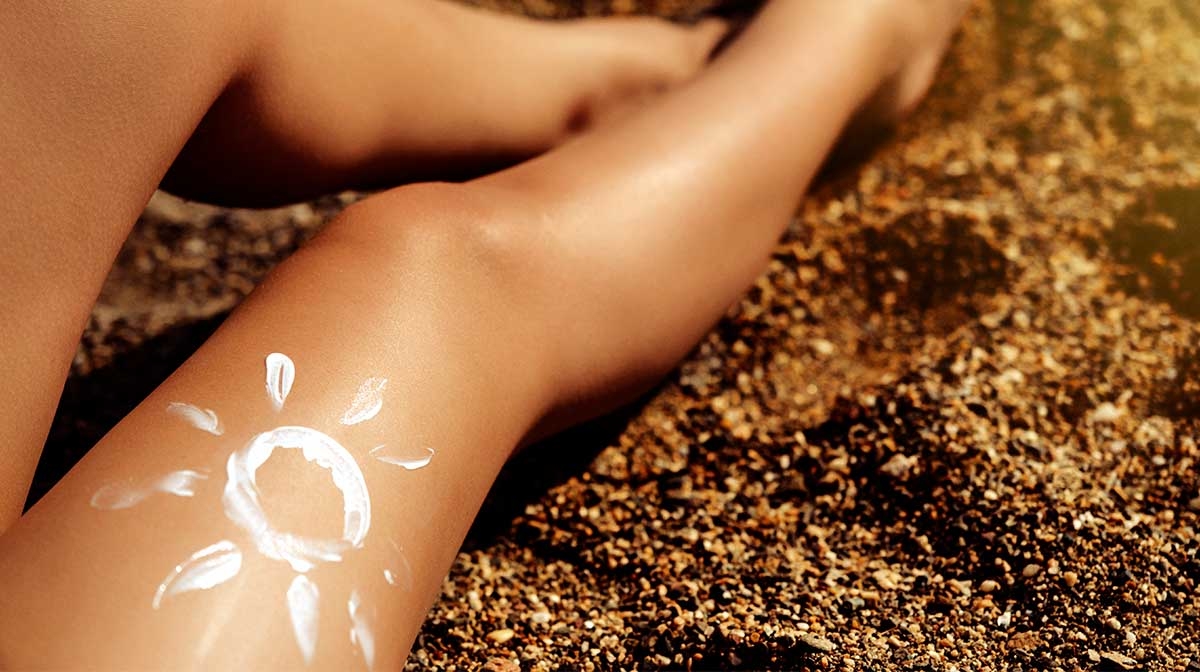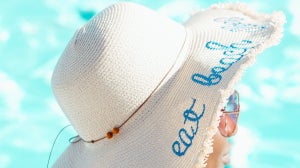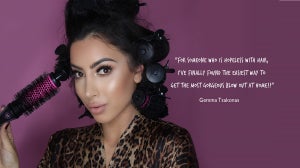
Another year, another sun care pitch. But if you decide to take just one step in the universal skincare routine, choose to wear sunscreen. We've broken down what all those letters and numbers mean to help you find the right one for you.
Sunscreen VS Sunblock
Sunblocks are formulated to protect your skin against UVB rays, while sunscreens shield against UVA rays.
Sunscreens use a variety of chemicals that work to absorb harmful UV rays before they penetrate your skin but some people are sensitive or allergic to certain ingredients, like PABA, and choose to use sunblock instead of sunscreen.
A broad-spectrum protection formulated sunscreen that protects against both UVA and UVB rays is the safest bet for everyone. 3LAB's formula is non-comedogenic as well as PABA and fragrance-free.
Understanding SPF
The SPF, or “sun protection factor,” refers to the product's ability in shielding against the sun’s ultraviolet rays. Essentially it's a measure of the time it would take for you to start turning red if you weren't wearing sunscreen.
It would probably take around 20 to 30 mins for your skin to start burning if you aren't wearing sunscreen. A product with factor 15 would prevent your skin from burning for 15 times longer – so around 2.5 to five hours, but you're not necessarily covered for the entirety of those 5 hours. This is why the little labels on the back of sunscreens recommend re-applying every two to four hours.
Your factor should reflect how long you intend to stay in the sun, and it's better to plan for longer. A common issue amongst sunscreen wearers is not the factor they choose, but the amount they apply. When it comes to sunscreen, less is not more.
Also, remember that the fairer your skin tone, the quicker you will likely burn.
Muse over dual-action sunscreens, that double up as an everyday products too:
Understanding UV Rays
It's the sun's ultraviolet rays that cause damage to your skin.
Sunshine is made up of different rays. Ultraviolet, or UV, radiation is the part of sunlight which damages and burns skin. It can also cause skin cancer. Ultraviolet radiation is broken down into three core bands: UVA, UVB, and UVC.
The amount of UV rays reaching the Earth’s surface varies throughout the day. Because it is typically hotter between the hours of 10am and 3pm, this is when skin damage can occur at the fastest rate. When there are no clouds, ultraviolet rays do their worst but UV levels aren't dependent on air temperature so it's important to consider that there can be high levels of ultraviolet rays on cooler days. UV rays still reach the Earth’s surface when clouds are present and the higher the UV radiation levels, the less time it takes for your skin to be affected.
UVA rays are long-wave solar waves that penetrate the skin seriously deep, even on a cloudy day. It's understood that UVA rays are the biggest cause of long-term skin damage, photo-ageing, wrinkles and sun spots.
UVB rays are short-wave solar waves that are more potent than UVA in causing sunburn and are regarded as the main offender in developing skin cancer.
UVC rays are the strongest and most dangerous of solar rays but the ozone layer stops these from reaching the planet.
Broad-spectrum and Multi-spectrum Protection
Where possible, choose a sunscreen that offers broad or multi-spectrum protection as these shield against more than one type of UV radiation.
Miscellaneous Sunscreens
If you plan on hitting the pool or the waves, choose waterproof or water-resistant sunscreens and remember to re-apply afterwards. The Cotz Plus Water Resistant Sun Protection is pretty neat because it's highly effective in the water, delivers a high SPF, works for sensitive skin types and is elegant in texture.
For the low-maintenance girl, Paula's Choice Sunscreen Spray might be the one for you. It's enriched with antioxidants which save the skin from antioxidants as well as your everyday SPF.
For the everyday outdoor girl, try Fallen's Total Block, which is a unique formula designed to work against the full light spectrum.
If you suffer from oily skin, try Peter Thomas Roth's sheer moisture defense lotion. It's super-light but very hydrating.
For sensitive skin types, refer to our in-depth guide.
Stay safe in the sun. Apply sunscreen at regular intervals, especially after swimming, towel drying or sweating. Browse our entire sun care range to help you stay protected.

Related Articles






